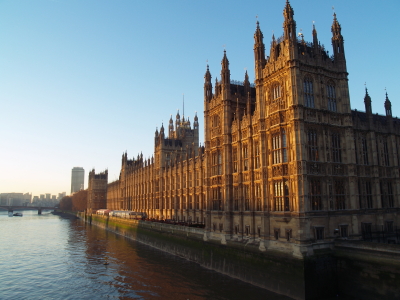Policy discrimination at the economic margins

Over time, individuals and economic units pass through cycles of relative exposure to variations in economic circumstances. The coincidence of a particular exposure with a policy decision which intensifies that exposure can drive individuals and economic units to the economic margin or even over it.
This arises from an arbitrary policy decision. It is arbitrary because such a decision has not been made taking into account specific circumstances.
The economic prejudice suffered is a direct result of policy discrimination; this can be unitentional just as is could be intentional.
In constitutional terms, discriminatory actions which impose an unjustified prejudice on any group should be compensated irrespective of whether the perpetrator of the imposition is an individual, an agent, a group, political faction or party or even government. |
|
Constitutional questions arising from macroeconomic management
Hector McNeill1
SEEL
This is a reposting of an article that first appeared in September, 2012
Macroeconomic management under Keynesianism and Monetarism relies upon the imposition of a monopoly intervention in markets by the state. The impacts of policy decisions varies amongst economic units and individuals within sectors and across the economy.
In cases of losses arising directly from government policy actions there is seldom any consideration of state liability for compensation. This raises significant constitutional questions which have yet to be addressed by governments and the economists who serve them.
Market interventions
Keynesianism operated on the basis of different actions applying policy instruments such as levels of taxation and public spending or the setting of interest rates to influence aggregate demand levels and propensity to invest. Monetarism operates by bringing influence to bear though the same policy instrument, interest rates or the rental price of money, to impact aggregate demand by discouraging or encouraging financed consumption. With the significant growth in financed consumption at the consumer level 2 demand is particularly sensitive to interest rates. On the other hand, the objective of Montarism is described more in terms of price stability, read low inflation, than in terms of aggregate demand (al la Keynesianism). However. both approaches, here referred to as KM policies, are based upon the exercise of a monopoly intervention by government in the operation of markets.
In a freely operating economy every individual and economic unit faces conditions which are quite specific. For example someone who has just taken out a loan based upon their ability to pay based on their current income might get into difficulties if the contracted interest rate with the financier is raised. On the other hand a company which has invested heavily in a sales campaign in order to fill its order book might be disappointed and even face order cancellations as a result of the taxation impacts or rises in debt service costs of customers arising from policy decisions. In practice the impact of manipulations of policy instruments by governments do not have a smooth generic impact across participants in an economy. On the contrary they have have significant differential effects depending upon the degree to which the economic activities of individuals and/or economic units are sensitive to the effects of the policy instruments applied.
Update
This article was first posted in September 2012 and the minority factional status of British governments referred to is that of the Labour governments between 1997 and 2010.
However, this problem continues.
The last Conservative-Liberal Democratic patrty government coalition could only amass 38% of the electorate's support and to form this coalition each party abandoned something like 60% of their manifesto pledges. And yet the coalition enacted legislation which did not feature in either of their manifestos.
The current government formed by the Conservative party gained 24 seats at the last election as a result of a 0.8% swing to end up with an absolute majority but having received the support of just 23.5% or the electorate.

After all is said and done Britain's political parties do not have the intellectual critical mass nor social exposure to fashion economic policies in the interests of all constituents. After all, what they purport to stand for only receives a minority electorate support. They cannot amass a membership that exceeds just 0.5% of the electorate. They are, without any doubt, factional minorities. But the so-called "Mother of Parliaments" is populated by representatives of organizations whose main quest is a form of illegitimate power which is devoid of majority support. The legitimate question is who, after all, do they represent and why are they there? |
|
|
|
Arbitrary monopoly decisions
It is therefore apparent that macroeconomic policy decisions, in spite of what might be claimed, can not have any intent to "level" the "playing field" or to secure some form of equity of treatment of individuals and economic units. Because economic units are so diverse any macroeconomic decision, and especially those seeking to reduce inflation, have a strongly differential impact and therefore such decisions have embedded within them a spectrum of relative arbitrariness. The arbitrariness varies from that of having inconsequential impacts on some firms at one extreme to corporate failure, loss of employment and home repossessions at the other extreme as a direct result of policy decisions.
Rights of passage are no more
Part of the rights of passage of governments has been that, for many years, they have imposed policies which in fact harm identifiable segments of the electorate without being called to account. The remarkable constitutional assumption has been that somehow economic policies are of a different nature to any other government policies. For example, human rights legislation might be used to call the governments to account for institutional discrimination or even tort claims for compensation for losses. This right of passage of presumed immunity from liability in the economic sphere is unlikely to last because the legitimacy, the electoral base supporting any particular political party who controls governance is virtually inexpressive. With governments being made up of private political parties with less than 19% of the electorate voting for them, there can be no assumption that the government acts in the name of some "majority". What is apparent is that governments act in the name of the governing political party and policies, far from being ratified by the electorate, are not much more than party dogma. Economic policies are of course a "sophisticated" expression of dogma, but as an embodiment of the presumptions of a political philosophy of how the economy "works", the overbearing liability for outcomes lies with the political party imposing such policy decisions.
The state of affairs is very close to that of a minister ordering a private company to dismiss certain individuals from their employment. Under such circumstances the minister would be likely to face a challenge at law. Similarly, if a minister ordered parties to a private sales contract to alter the prices they had agreed, prejudicing one of the parties, again this would be challenged. If a minister reduced the quota of market cash flow directed towards a specific service there would be similar legal challenges, and so it goes on. Just because macroecomic policy is exercised by a minister acting on behalf of "the government" does not alter the fact that when a chancellor takes a decision in the guise of economic policy this can have the same types of effect as the examples described in the preceding sentences. And yet the government remains immune from legal challenges.
The electoral escape clause
The assertion by politicians, and even some economists, is quite often that such liabilities cannot be placed at the feet of government since these represent a collateral damage which arises from trying to manage an unruly economy. As long as the operation of the economy remains distinct from an "Act of God" economic policy, like any other policy, arises in a democracy as an outcome of elections, governemnt formation and a concept of Parliament representing the will of the people. As mentioned, because of our electoral processes and the lamentable state of British political parties, policies enacted by Parliament are no more than minority faction impositions. Thus the current goverment which has the electoral support of less than 19% of the electorate but under Britain's bizarre system holds some 54% of the seats in Parliament and an absolute voting majority. Thus in the case of macroeconomic policy, a minority faction can impose decisions on the majority of those working in the economy, that is those who own or are employed by economic units. Whereas where laws and policy decisions are deemed to have prejudiced individuals there remains the option of legal challenges. In constitutional terms the arguments in favour of the outcomes of economic policies being subjected to legal scrutiny and in particular the use of tort law are sound. After all, if economists and economic decision-makers were professionally liable for the outcomes of their decisions there might be less experimentation at the expense of others. Politicians and political parties are concerned about such issues not from the standpint of liability but rather of the effects of mistakes on their ability to remain in power. If things go really badly British political parties have always avoided claims for compensation by applying the electoral escape clause. That is, "If you don't like what we do, throw us out at the next election!". This, of course, sells the electorate the concept of their having the power to substitute a government and in this process forget about chasing a political party for compensation.
The rise of the faithful representative
The problem is that in reality the electorate has no power at all because they are offered electoral options by small private organizations who cannot muster more than 1% of the electorate as members. Members of political parties are intellectually-shackled to their party dogma. These unrepresentative organizations use the first-past-the-post electoral system to lever themselves from a status of insignificance, on the basis of less than 19% of electoral support to a position of absolute power over the people and the economy. The only way to replace this repetitive cycle is for people to begin to be more proactive in making political parties liable for economic losses incurred as a result of the policies they choose to impose. In this way both the nature and practical effectiveness of community representation could shift towards more substantive individuals who take it upon themselves to be faithful representatives of their communities and free from party dogma. Their only option in serving their communities would be to seek to formulate national policies through a participatory means and thereby drive governance towards a position of representing the collective will of the people 3.
2 Hector McNeill is the director of SEEL-Systems Engineering Economics Lab.
2 Note on consumer credit cards: In 1971 there was only one credit card available and now there are over 1,500. Between 1971 and 2003 credit card advances (amount owed) rose from £32 million to £ 49 billion. In 2007 credit card debt surpassed £ 200 billion and is expected to rise to £ 230 billion by 2011.
3 Proposals on how to achieve an increased national uninimity without partizan compromise are contained in Chapters 22 through 26 (Knowledge & Preferences, The Minority Principle, The Perfection of our Democracy, A General Election and Parliament) pages 229-288 in "The Briton's Quest for Freedom - Our unfinished journey..", McNeill, H. W., Hambrook Publishing Company, July 2007, ISBN: 978-0-907833-01-7.
|
|

|
|
|